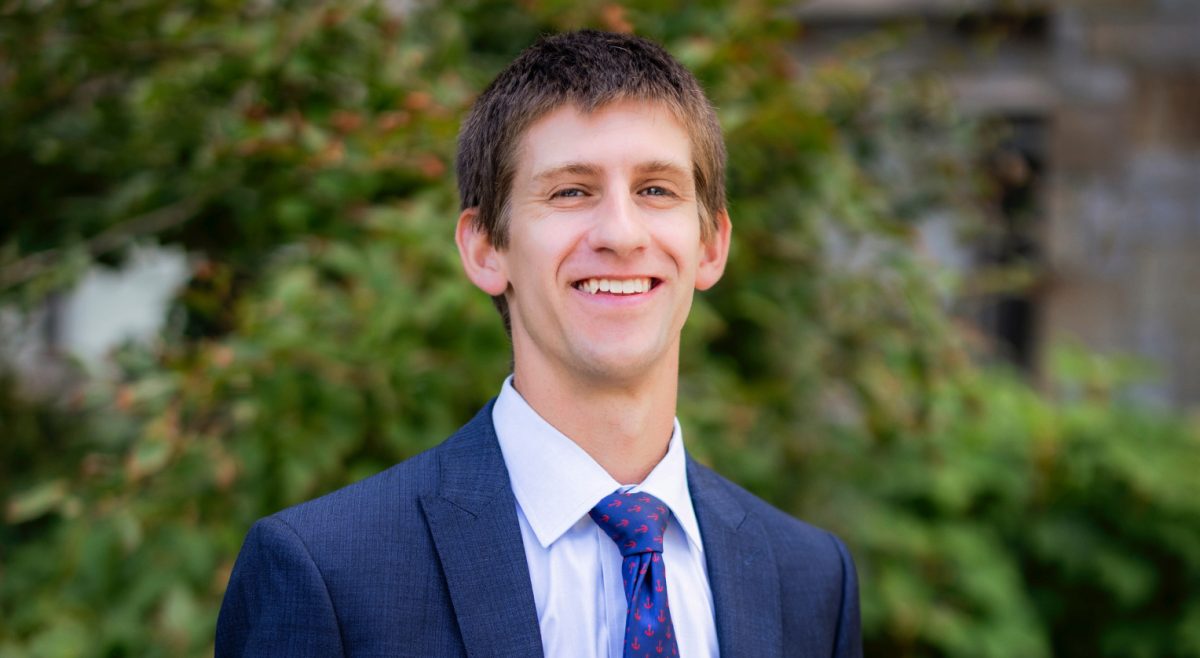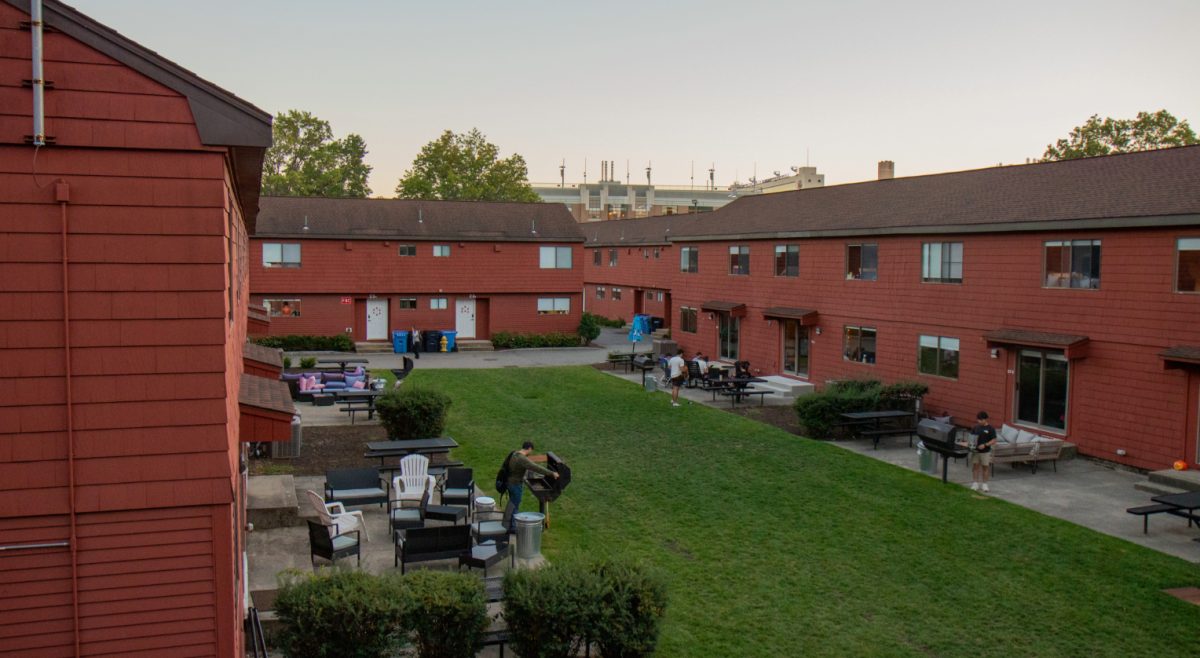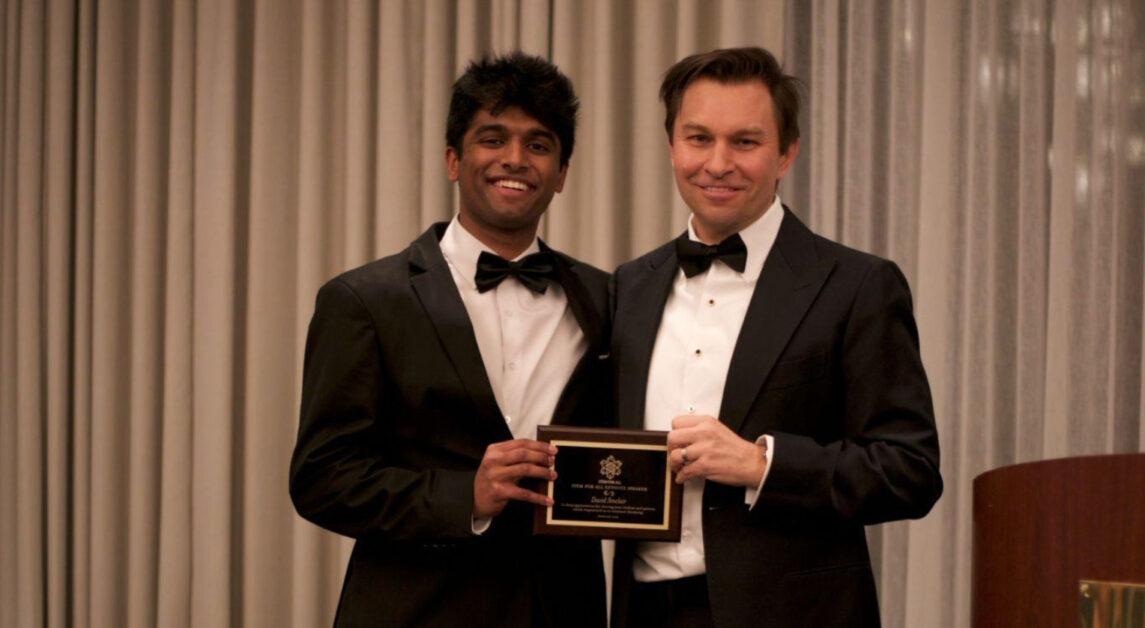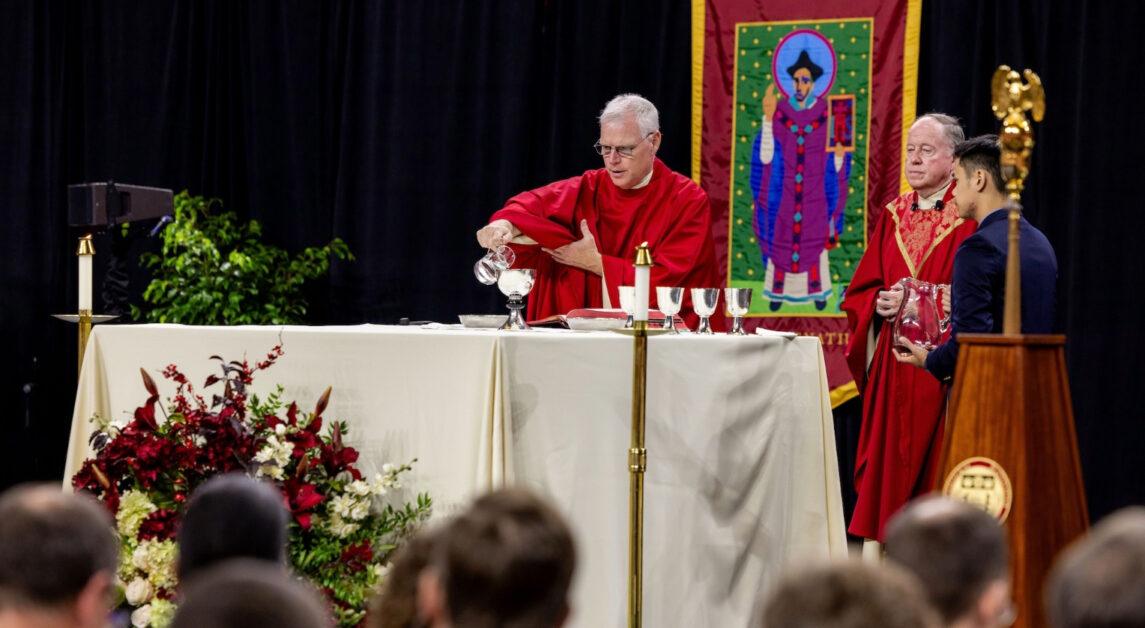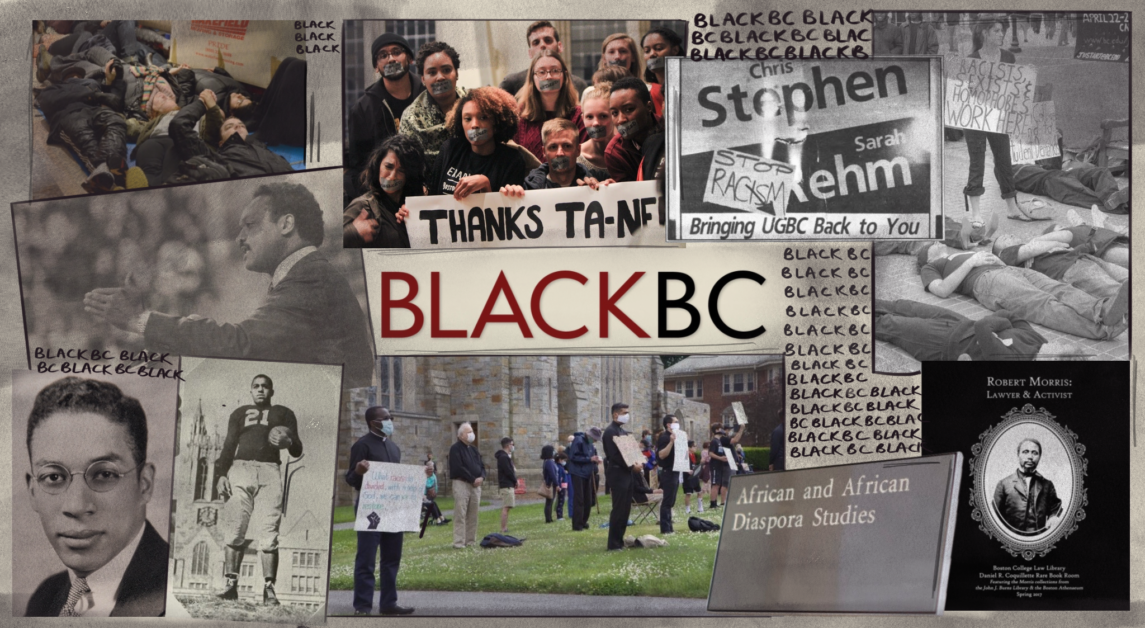For Valentine’s Day, Boston College students can send their valentine a box of chocolates or a bouquet of flowers. Or, they could send them a bag of condoms.
Boston College Students for Sexual Health (BCSSH), an independent student group committed to providing students with sexual health and sex education resources, distributes “condomgrams” to members of the BC community every Valentine’s Day. At no cost, students can send their valentine a bag of condoms.
But BCSSH does not just provide students with resources on Feb.14—the group also runs Rubber Hub, a program where students can order condoms, lube, and dental dams throughout the year. To fund its services, BCSSH receives a grant from Planned Parenthood, a nonprofit organization that provides reproductive and sexual health care.
BCSSH is not associated with BC and is not officially allowed to distribute condoms on campus. On the 2018 UGBC election ballot, 94 percent of BC students voted in support of a referendum allowing BCSSH to distribute contraceptives on campus. The University then doubled down on its disallowance of contraceptive distribution, citing other Jesuit schools’ policies and its commitment to BC’s Catholic identity. Another policy stemming from BC’s Catholic identity is the University’s stance on sexual activity. The University prohibits students from engaging in intercourse outside of marriage in policy 11.8 of the Student Code of Conduct.
“All students have a responsibility to respect the values and traditions of Boston College as a Jesuit, Catholic institution, including adhering to the Church’s teachings with respect to sexual activity,” the policy reads. “Consequently, incidents of sexual intercourse outside the bonds of matrimony may be referred to the Student Conduct System.”
According to Vice President for Student Affairs Shawna Cooper Whitehead, Associate Vice President of Student Health and Wellness Melinda Stoops, and Associate Vice President and Dean of Students Corey Kelly, the University’s policy on sexual activity is a longstanding part of the Student Code of Conduct and reflects BC’s Jesuit identity.
“All policies within the Code of Conduct, including this particular policy, are influenced by Boston College’s Jesuit Catholic heritage,” the administrators said in an email to The Heights.
The University reviews the school’s policies regularly to ensure they align with the demands of the BC community and its values, they said.
“The University is continually looking at whether our policies continue to meet the needs of our community and the mission and values of the institution,” the administrators said.
These administrators did not respond when asked if the University actively enforces its sexual activity policy.
When Ryan Kruft, CSOM ’23, ran for UGBC vice president in the spring semester of 2021, one of the major goals of his campaign was to “legalize sex” at BC. Though he lost this election, Kruft said he still thinks the University’s ban on sexual activity in the Code of Conduct is unnecessary.
“I understand where the University is coming from as a Jesuit Catholic institution, but at the same time, you can’t really enforce a rule like that,” Kruft said. “We were just like, ‘Why is that something that the University is so worried about?’”
Kruft said students seemed to agree with his campaign on social media, but he and his running mate, Spencer Sandusky, BC ’22, were not taken very seriously.
“We were sort of a joke campaign as much as I hate to say it, so I don’t think anyone was taking us super seriously,” Kruft said.
Though Kruft said their campaign platform was not super serious, he believes BC’s policies still have a serious impact on students. Kruft added that BC’s Catholic values should not get in the way of encouraging sexual health.
“Promoting safe sex shouldn’t be an issue of religion,” Kruft said.
BC’s policy regarding sexual activity also creates a harmful stigma around the subject, according to William Kelly, MCAS ’26, who also said the University’s policies are naive.
“Kids definitely don’t follow the rules,” Kelly said. “Sex is a taboo topic on campus, but I think that’s something that [the University] is fine with.”Kruft said the University’s policies surrounding sex might make some students feel shameful—but that does not necessarily mean everyone, or even most students, let this shame deter them from engaging in sexual activity.
“I would say there’s more of a hookup culture at BC,” Kruft said. “It definitely feels like people are more interested in hooking up than they are in like, meeting somebody and starting a relationship.”
Nicholas Astolfi, MCAS ’25, agrees that most students do not follow BC’s policy on sexual activity.
“We make our own culture,” Astolfi said. “The Jesuit influence doesn’t necessarily have any effect on the entire student body.”
Describing the culture on campus, Astolfi said BC students tend to focus on dating.
Kelly, on the other hand, said there is a prominent hookup culture on campus where students embrace casual sexual encounters.
“It’s much more of a hookup culture than a dating culture,” Kelly said. “For the most part, it’s like transactional hookups.”
Although Kate Salomon, MCAS ’26, does not know many people on dating apps, she said certain popular apps are associated with hookup culture instead of serious dating.
“The stigma surrounding dating apps depends on which app,” Salomon said. “Tinder is known for hookup culture.”
Some professors weave the topic of hookup culture into their curriculum, but Salomon said most class discussions feel like a guilt trip.
“For one class we had a whole unit on hookup culture and why it’s bad,” Salomon said. “I feel like they’re trying to push people away from that and make you feel guilty.”Kelly, Salomon, and Astolfi were all unaware of what sexual health resources BC provides.
“I don’t know of any sexual health resources on campus aside from maybe STD testing,” Kelly said. “I’m just unaware because it’s not talked about.”
Director of University Health Services Douglas Comeau said UHS offers testing and treatment for students with sexually transmitted infections.
“University Health Services (UHS) has daily appointments for women’s health and men’s health concerns,” Comeau said in an email to The Heights. “If there is a clinical concern for sexually transmitted infection (STI), an appropriate laboratory work-up would be performed. Depending on the test results, appropriate point of care treatment or prescription treatments are provided.”
Comeau did not respond when asked if UHS offers contraceptives to students.
Because BCSSH cannot distribute contraceptives on campus due to the University’s policy, the group sets up a table outside of McElroy Commons on the corner of College Road, according to Emily Parra, former president of BCSSH and BC ’22. This location is not on University property, so BCSSH is free to hand out contraceptives.
Parra did not attend a Catholic high school, and she said all of her friends from home went to liberal arts colleges where sexual health resources are made widely available. So when Parra first arrived at BC, she was shocked to realize that sex is a taboo subject on campus and conversations surrounding sexual health are uncommon.
“I think BC does a very effective job at making it like a very secretive and embarrassing and shameful conversation to be having, which I think only does students a disservice,” Parra said.
Regardless of the University’s policies surrounding sex, Parra said students still engage in sexual activity. So, she said the University should be proactive and acknowledge sexual health as an vital aspect of overall student health.
“At the end of the day, they’re just turning a blind eye to something that’s obviously happening on campus,” Parra said. “So I think that that is a very ignorant way of treating a student body.”
To fight the taboo she witnessed on campus, Parra worked to expand the resources offered by BCSSH during her time at BC. Through their tabling efforts and their Rubber Hub and condomgram services, Parra said BCSSH members hope to make sexual health resources available to all.
“Condoms are not that cheap,” Parra said. “It’s expensive to go buy them. You have to go off campus. If students don’t have cars it’s not just something you can naturally happen upon if a school is not offering it.”
By changing its policies and making contraceptives accessible on campus, Kelly said the University can support the student body and confront the stigma surrounding sexual health.
“Everyone’s uncomfortable talking about it,” Kelly said. “Maybe even RAs should have condoms to give to their kids if they need them.”
Because, after all, students are still going to have sex, Kelly said.
“It’s college and it’s 2023—sex is a normal thing,” Kelly said.


